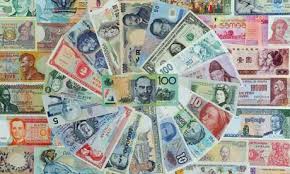记忆方法
记忆“currency”可以通过联想其组成成分来记忆。将“cur”想象成“current”,代表流动的,然后想象“re”如同“rent”(租金),意味着不断流通的东西,就像货币(money)一样,在市场上不断流通和交换。这样,你就将“currency”联想为流动中的货币。
以上内容由AI生成, 仅供参考和借鉴
中文词源
currency 通货,货币
来自current, 流动的,流通的。
英语词源
- currency (n.)
- 1650s, "condition of flowing," from Latin currens, present participle of currere "to run" (see current (adj.)); the sense of a flow or course extended 1699 (by John Locke) to "circulation of money."
权威例句
- 1. You need hard currency to get anything halfway decent.
- 你得有硬通货才能买到还算不错的东西。
- 2. Inflation has turned the rouble into a toytown currency.
- 通货膨胀使得卢布变成了毫无价值的货币。
- 3. Currency-conversion costs remain one of the biggest obstacles to cross-border trade.
- 货币兑换成本仍是跨境贸易的最大障碍之一。
- 4. Countries may also find their currency is depreciating in foreign markets.
- 一些国家也可能会发现自己的货币正在国外市场上贬值。
- 5. The country's currency went down in value by 3.5 per cent.
- 这个国家的货币贬值了3.5%。
